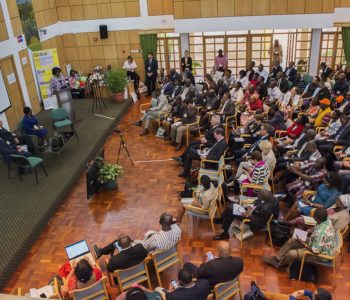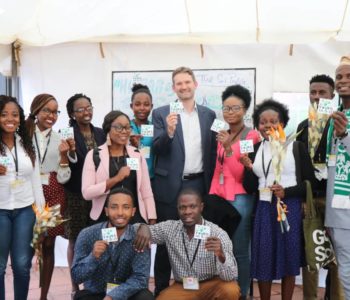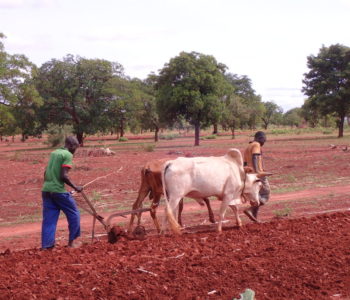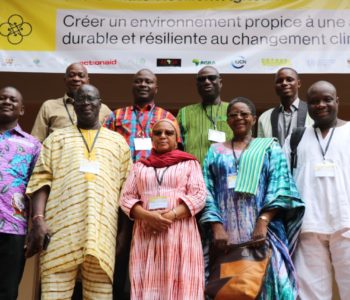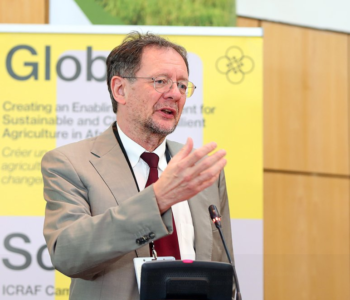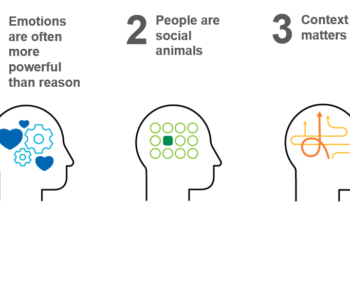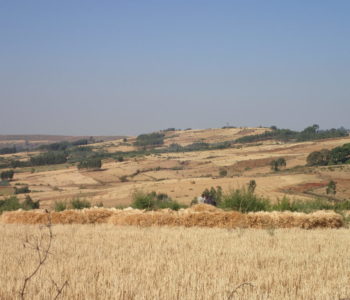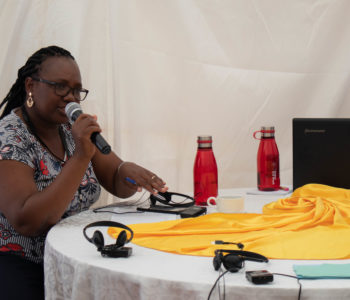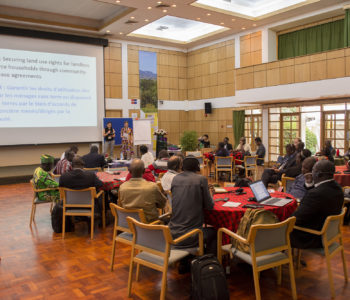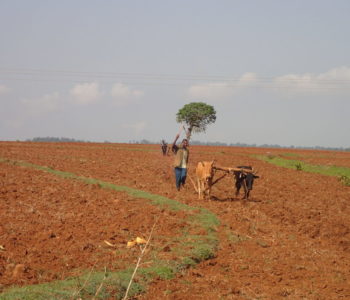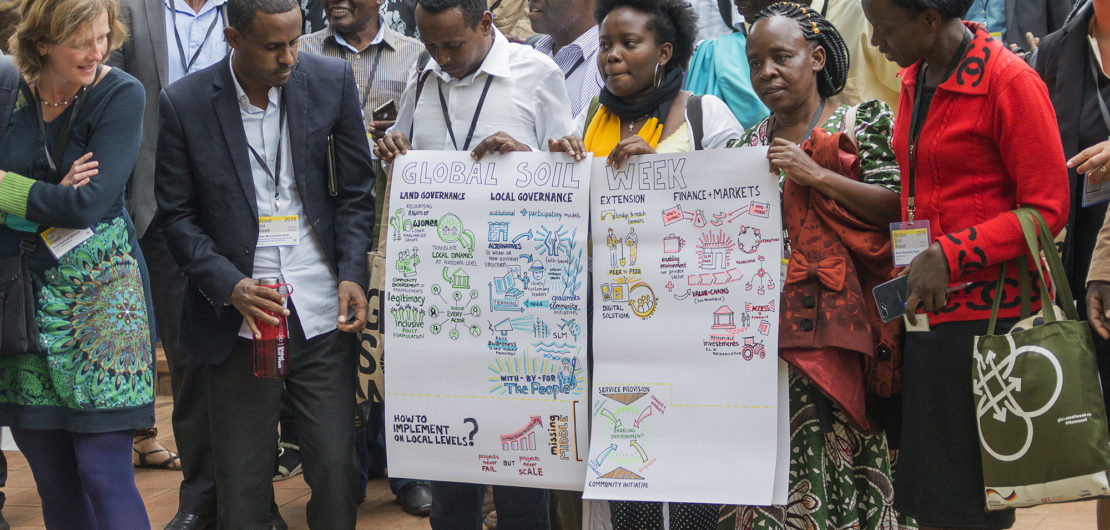
Accelerating collaboration for sustainable agriculture
Accelerating collaboration for sustainable agriculture
By Abraham Ng’ondo
The art of doing starts with an action says my logic professor during the start of his lectures. He often mentioned that we need to think global but act local. I have never understood this statement until I attended the Global Soil Week 2019 conference.
The conference attracted different partners and players who converged in Nairobi at ICRAF Campus to talk about the care and concern for soil. The conversation started from a brief history as to why the plight of soil was neglected and yet, it is important in the achievement of global goals.
The decentralization of global targets to local actions was the focus of the conference. The sentiments of committed international partners to protect and enhance soil health, to create an enabling environment and the insistence for a climate smart farming as well as sustainable agriculture dominated the many workshops during the conference.
The infusion of human action and the pursuit of nature-based solutions came out vividly from the over twenty case presentations at the conference. Some case studies from Kakamega county, which happens to be my origin revealed the existence of some good compelling solutions addressing food challenges and sustainable agriculture as developed by different stakeholders.
Concepts presented during the conference showed how local innovations and actions can help solve local problems and challenges. It was evident from the cases that standing up for marginalized groups can help empower them to act and be part of the solution. It was also emphasized that the proposed solutions must be nature-based as means to regenerate for an ecosystem balance.
The conference proposed four dimensions of an enabling environment which are expanded on below, but in broad breadth, I grouped them into two themes. The first is social empowerment towards enhancing livelihood standards and ensuring greater social impact in achieving global goals. The other is the institutional engagement, targeted at enacting policies that can create an enabling environment for climate resilient agriculture in Africa. The workshop discussions within each dimension were as follows:
Land governance
The land governance workshops discussed that legislations of land laws and regulations enacted should recognize the rights of women to land. Review of land tenure systems will enable women to be part of the sustainable farming process.
In Kenya, the current constitution recognizes the right of women to land but there is still vicious friction in allowing them to use the land unconditionally, more so for agricultural activities. The rights to property among women globally, has restricted women into joining economical agricultural production.
Evidence from the workshop dimension on land governance shows that successful formulation of land tenure laws and grassroot community efforts are often central to achieving an enabling environment for economical use of communal land by women.
In most African rural communities, women play a big role in agricultural production for subsistence. Hence, enabling them to have stronger control of the land they plough through land tenure systems will support them to improve their farming practices both at subsistence and commercial level.
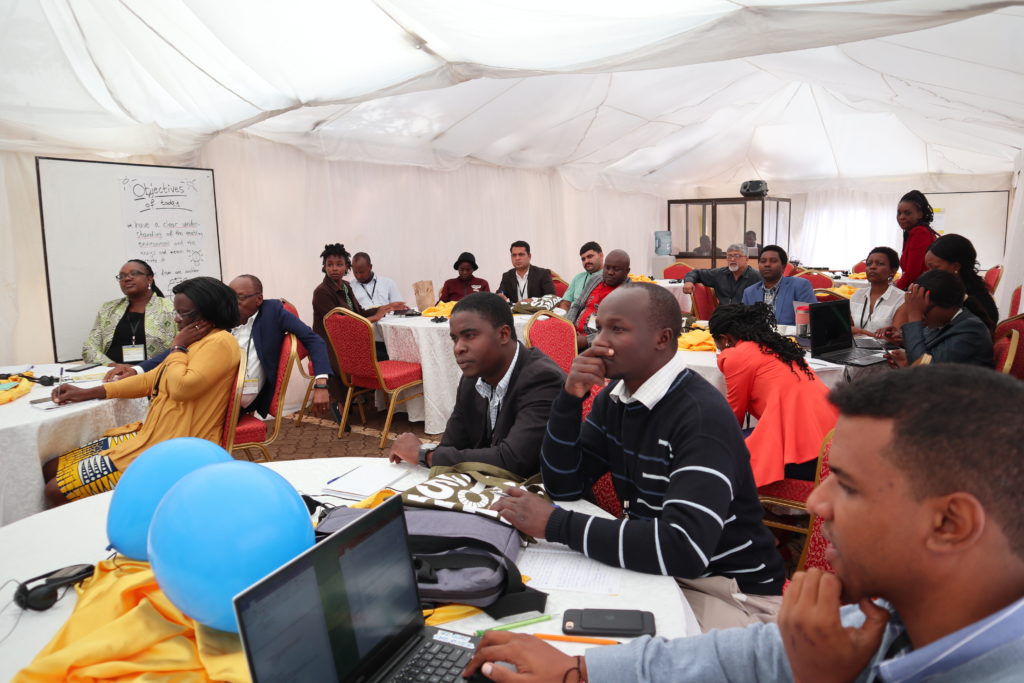
Local governance
In this dimension, it was emphasized that local governance institutions should be able to support marginalized groups such as women and youths to access land for agricultural activities. This has been protracted by various faith-based organizations as well as women chamas or groups in Kenya.
Stakeholders within the local governance dimension workshop emphasized that local communities can only engage in sustainable land management and use if local authorities are able to put in place binding contracts that will allow rights to land as well as prevent degradation of land from users.
To achieve an enabling environment at the local governance level, inclusive and participatory engagement that is in line with the customary laws should be explored while capitalizing on local leaders in the rural villages to create awareness and enlighten their communities.
Extension services
In this vein, stakeholders discussed why sustainable agricultural production and soft infrastructural network should be linked to support digital solutions for farmers as local farmers tends to suffer from high transactions costs in accessing extension solutions.
In the case of Kenya, a country with the robust mobile connectivity, farmers and service providers tend to look to digital platforms to enhance agricultural productivity.
Stakeholders from this dimension workshop agreed that efficient connectivity can allow rural farmers with access to powerful telecommunication services to enable peer-to-peer learning and skills development on good and sustainable farming practices.
Finance and markets
It is often said that finance allows us to attain our budgets and carry out daily activities. During the dimension workshop on finance and marketing, the participants discussed the need to know the sources of funds and the requirements to obtain loans.
The risk of defaulting was, however, debated among the workshop participants given that most farmers who need funds do not have good credit ratings.
Private investors and other donor agencies are critical in ensuring sustainable project funding and, in the provision of in-kind loans. To achieve this, it was emphasized that farmers need to be organized in groups and pool resources together as means to better finance their agricultural activities.
Regarding the discussion on market, it was stated that organic farmers are key in the agricultural value chain since markets for organic goods are on the rise in light of global demand.
To further tackle the issue of markets for farmers, the participants within this dimension workshop appealed on the need to create value addition opportunities for farmers to be integrated in the local and global value chains.
Being one of the youth in soil delegates at the 2019 Global Soil Week was a real-time opportunity for me to learn on the different anchors of an enabling environment and to meet with different stakeholders who cares about sustainable and climate resilience agriculture.
